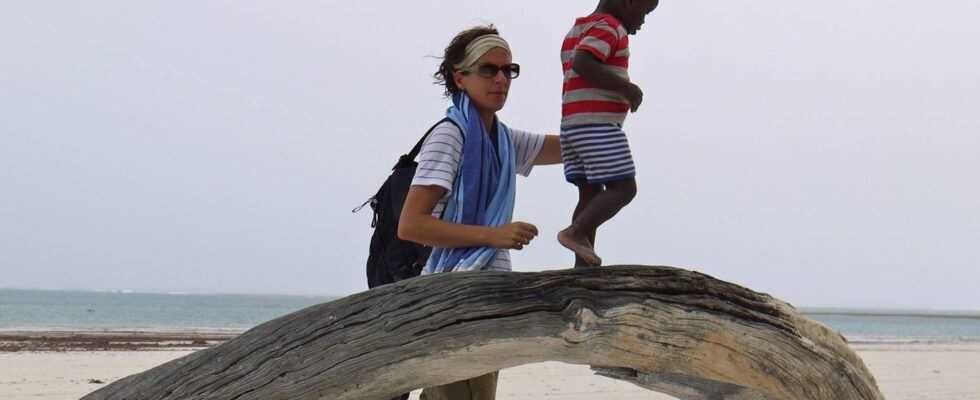With the adoption of an East African child, Sabine Priess experienced a painful change of perspective. And noticed how widespread racism is still in Germany.
by Sabine Priess
Of course, it was clear to us that a child with black skin would also be exposed to exclusion here in Germany. My husband knew that even before we adopted our son, who has East African roots. But I thought that we could definitely be strong enough to help the child over these cliffs with humorous ease and to raise them to a solid personality, on which such hostilities roll off in the best case, because they are above it.
Do you taste like chocolate
But reality caught up with me soon after the adoption of our son, who came to us as a two-year-old in 2013. A reality, that I have to anticipate, that is a lot harder and more painful than I could have ever dreamed. When our child came to daycare at the age of three, it started. The constant questions, mostly well-intentioned, moved into his everyday life: "Why do you look different", "Do you taste like chocolate?" and the exclusion began: "You are a chocolate muffin, you are not allowed to play along".
On a day-care trip, my child was called "Nutella" by the others – the teachers, who I actually liked personally, didn't think that was a problem (it had a positive connotation) and told my son to sort it out himself. He was five years old then. He was very unhappy when he came back from that trip. "Everyone is excluded from time to time"said the teachers when I asked them about it. I was also told that little Jannik was recently not allowed to play with the girls because he is a boy. "The same song," it said. My objection that there would be big differences if the black child were the only or one of very few children was smiled away.
The desire to look more like "the others"
I've lost my laughter over the years, I must confess. Because I see how much the exclusion hurts my son and undermines his self-confidence. This fantastic, headstrong and charming boy recently desperately wanted to have white skin or at least to be "a little lighter". It breaks my heart. Of course I strengthen him, tell him how wonderful we find him as parents just as he is. But I can see it in his eyes, even if he is silent: He thinks he's wrong. And I can understand him. Because his surroundings have been signaling him to be different for years. "Sure you're so good at football". "He's really wild, too," other parents happily whispered to us with a smile.
When someone asks me why one shouldn't actually ask black people where they come from, I usually answer that they should just imagine that they are being asked that all the time. Sometimes several times a day and often from strangers at the bus stop. The change of perspective, which I am able to a certain extent because I am the mother of a black child, helps me to see that, to recognize that. That was not always so. In the past I would have found the question harmless and would have considered myself right to ask it. But I also used to find that children's books with the N * word didn't need to be changed. For me – as for so many – they were simply relics from another time. That changed suddenly when I read Pippi Longstocking to my son as a school child. In the meantime he knew that the job title of Pippi's father was a tangible racist insult. He was totally shocked that it was written in books. And it hurt him. He was sad and we took the book off his shelf by mutual agreement and forever.
I was annoyed with myself. I could have bought the adapted version, left out the word or (and above all) sorted out the book myself. But my path was also a process.
Looking for more diversity in children's literature
From that point on I looked more specifically for correct, but also more diverse children's books. If possible with black-skinned children as protagonists. But these books hardly exist. So I wrote one with my son. It says: "Sure I'm from here. What a black boy experiences in Germany" and many of the stories in it happened one way or another. And they happen to black children in Germany every day. They are grabbed by the hair without being asked, they are put in drawers, insulted, marginalized and they are verbally and physically attacked.
I would like as many people as possible to try to change their perspective and empathize with people who may look different (and I mean that in every respect), but who are and still want to be part of this society. Integration is so often called for. But for those who want to and should integrate here, it is not made easy from childhood. Because a supposedly just curious "where are you from?" Perhaps implies for the so often asked the not necessarily also pronounced "and when do you go back there?"
© PR
Book tip: "Sure I'm from here" by Sabine Priess, edition riedenberg, 14.90 euros.
